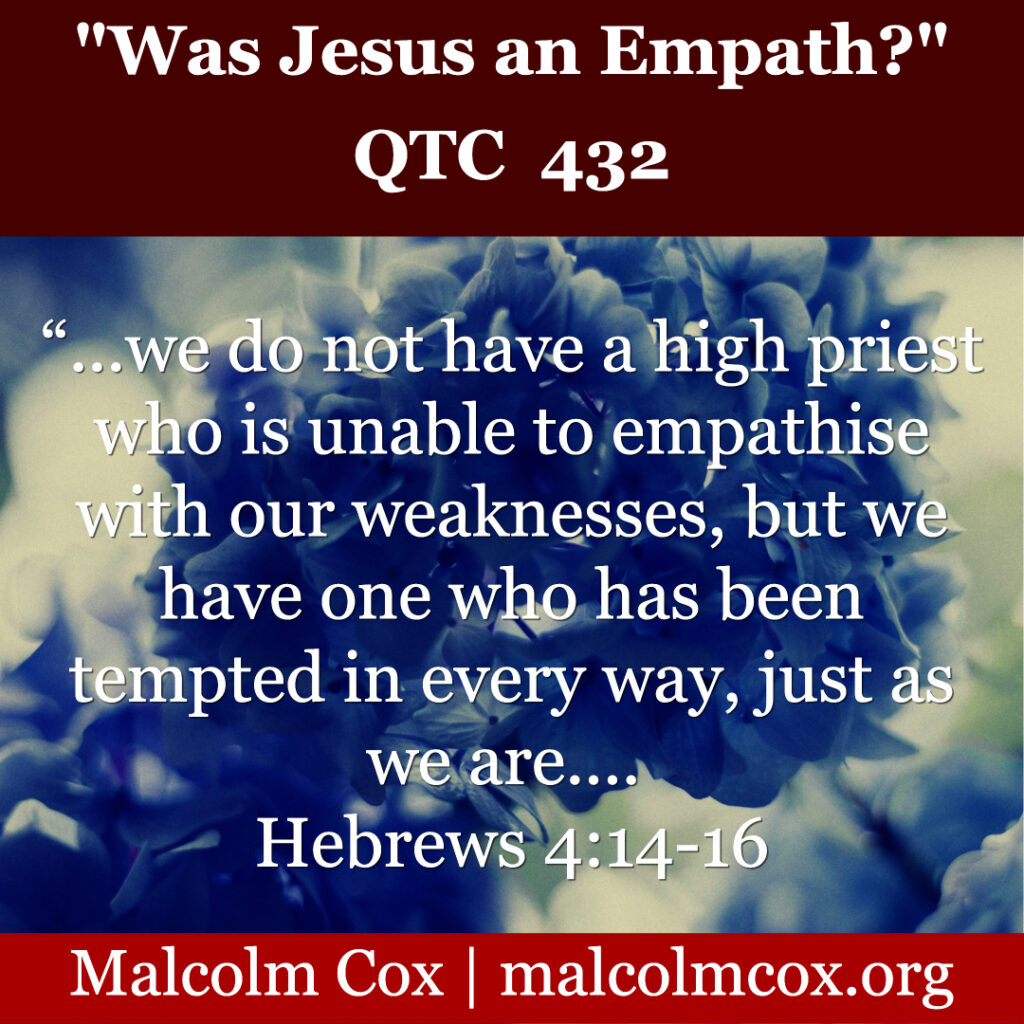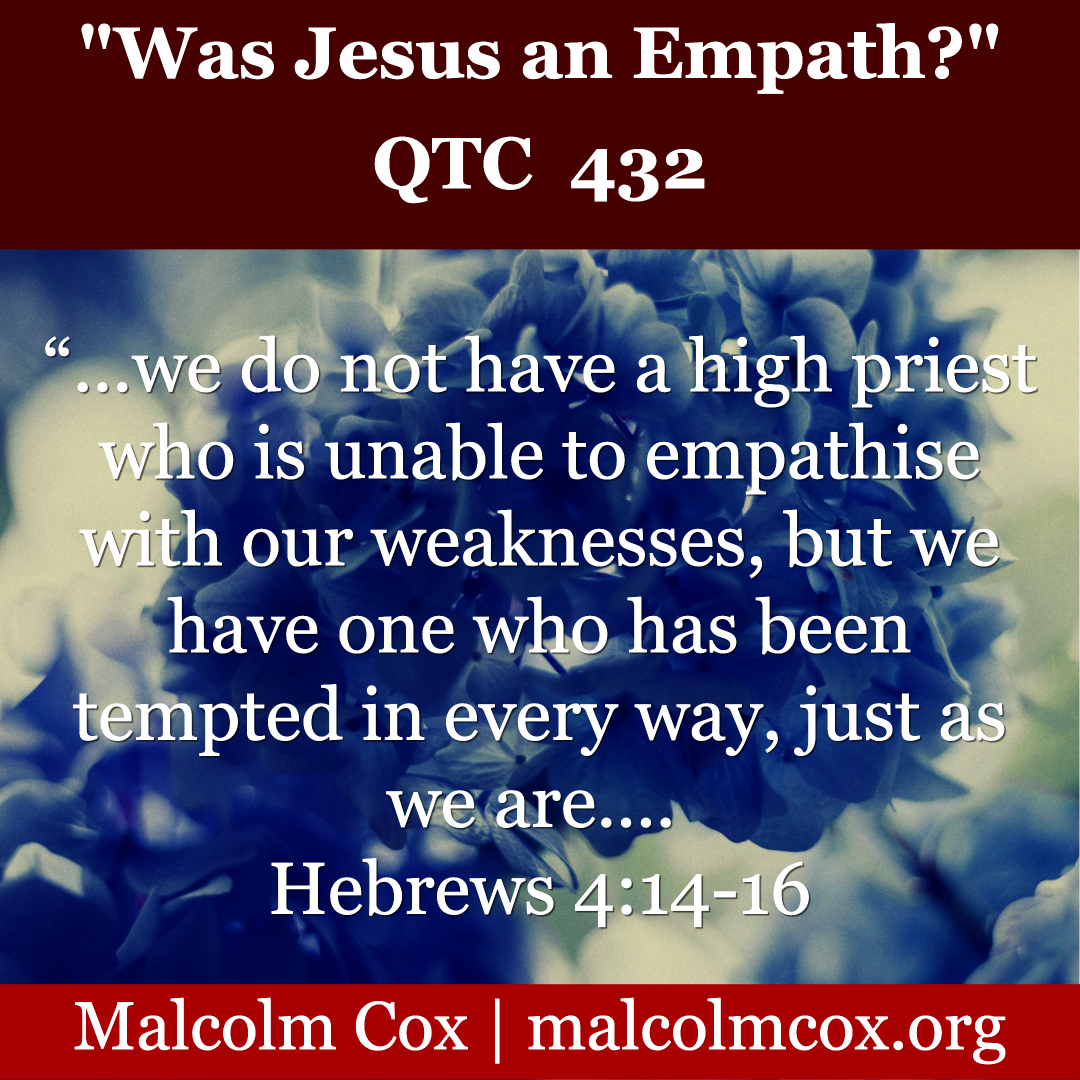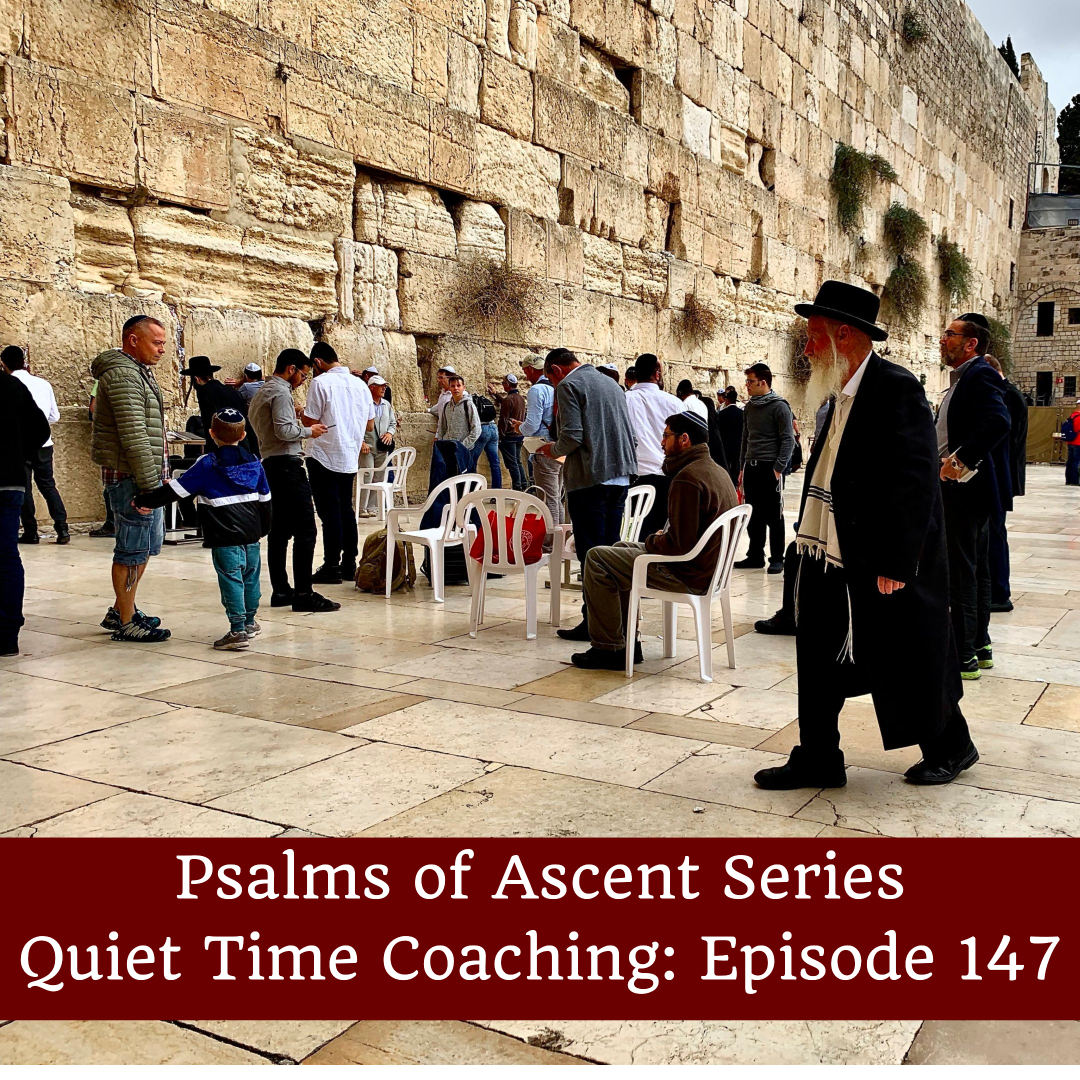
What is Jesus an empath? I was speaking on Hebrews 4 recently, and it struck me that the NIV translates one of the qualities about Jesus being that he can empathise with us.
“Therefore, since we have a great high priest who has ascended into heaven, Jesus the Son of God, let us hold firmly to the faith we profess. For we do not have a high priest who is unable to empathise with our weaknesses, but we have one who has been tempted in every way, just as we are—yet he did not sin. Let us then approach God’s throne of grace with confidence, so that we may receive mercy and find grace to help us in our time of need.” (Hebrews 4:14-16 NIV11-GK) (NRSV translates ‘empathise’ as ‘sympathise’)
Is there much of a difference? There are technical differences, but I’m not sure whether the Greek makes those. Instead, for the writer to the Hebrews is getting across is the Jesus gets us, understands us, feels us. We see this so often in the gospels when the person he is speaking to is treated as if they are the only person in the world. There is another verse in Hebrews which uses the same word.
“You suffered along with those in prison and joyfully accepted the confiscation of your property, because you knew that you yourselves had better and lasting possessions.” (Hebrews 10:34 NIV11)
Jesus suffers with us. He feels us. He does not simply understand. Nor is he detached from our suffering like a professional counsellor or consultant. He is right in there, alongside and experiencing our suffering. That makes all the difference to our prayers. One of the wonderful things this tells us about Jesus is that he has the courage to enter into our pain. As Bernie Brown puts it in her book I thought it was just me, ‘Empathy requires that we practice ordinary courage, compassion and connection.’
What is the essence of this sympathy/empathy? It is love. Thomas Oord in his book, The Science of Love defines love as “acting intentionally, in sympathetic response to others (including God), to promote overall well-being.”
Do you trust when you pray that as you bring your pain to Jesus he empathises, he sympathises, he stands together with you. He is never distracted when you pray. He is fully attentive, fully engaged, and fully available to you.
Please add your comments on this week’s topic. We learn best when we learn in community.
Do you have a question about teaching the Bible? Is it theological, technical, practical? Send me your questions or suggestions. Here’s the email: malcolm@malcolmcox.org.
If you’d like a copy of my free eBook on spiritual disciplines, “How God grows His people”, sign up at my website: http://www.malcolmcox.org.
Please pass the link on, subscribe, leave a review.
“Worship the LORD with gladness; come before him with joyful songs.” (Psalms 100:2 NIV11)
God bless, Malcolm



